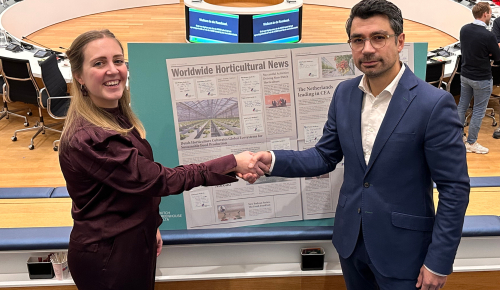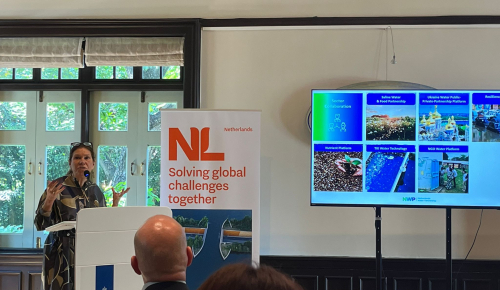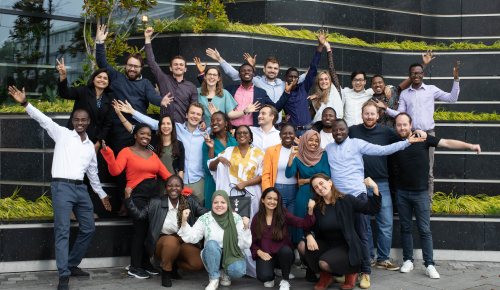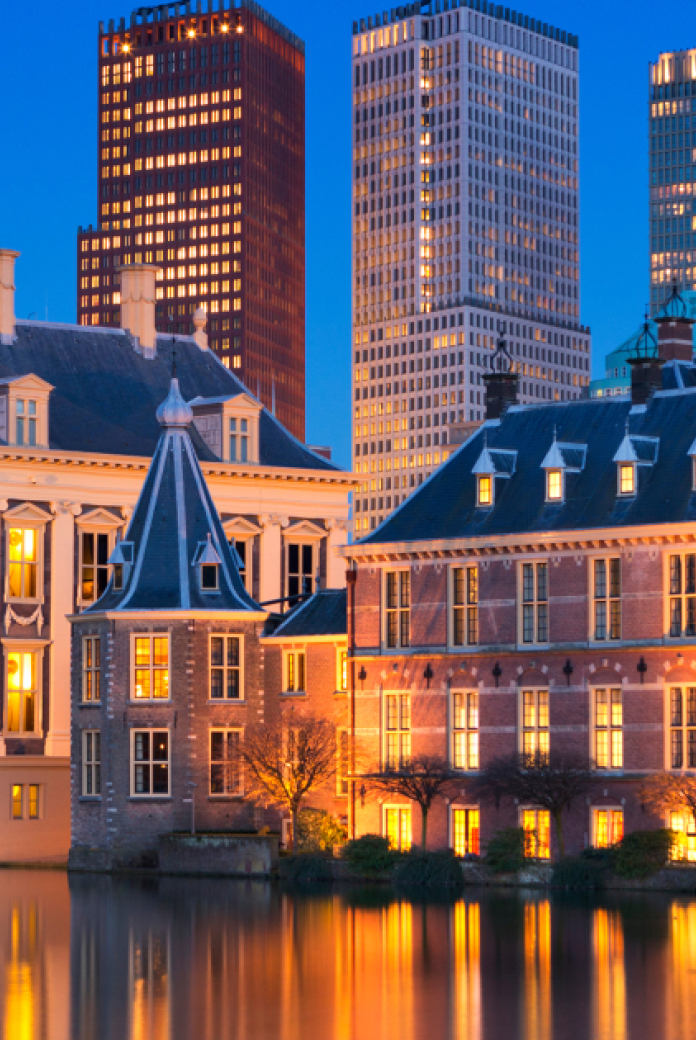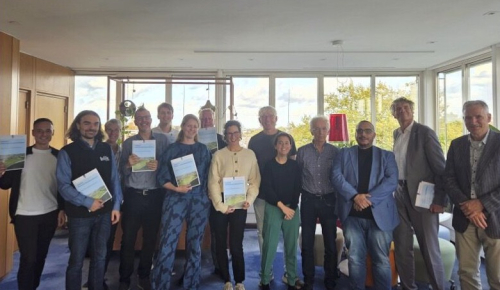News
15 October 2020Must do better: the Dutch water sector at home and internationally
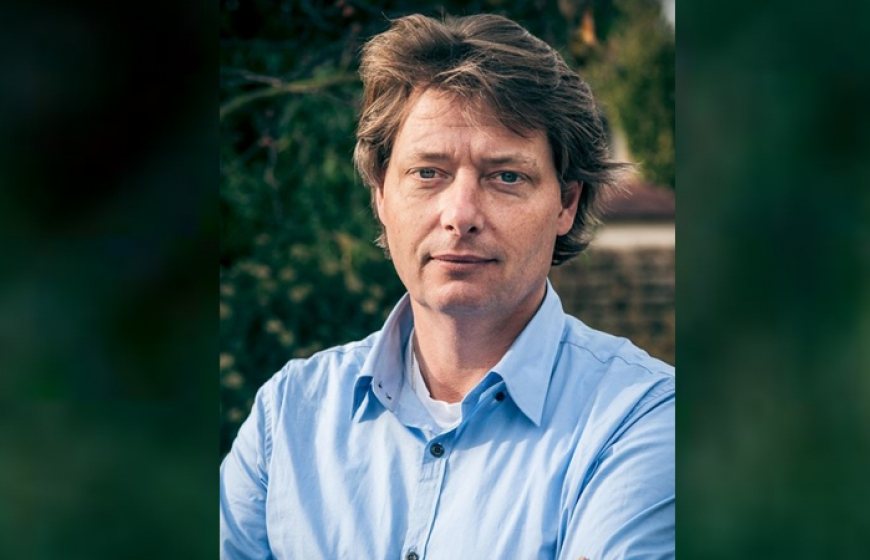
The Dutch water sector has a strong reputation. But it could and should do more to promote nature-based solutions and to draw attention to the value of the ecosystems upon which we all depend, says Bart Geenen, who heads the freshwater unit of WWF Netherlands.
As head of the freshwater unit at WWF Netherlands, Bart Geenen has a direct interest in the Dutch water sector in the Netherlands and internationally, as his unit covers both. He sees that the sector has a important contribution to make. “The Dutch water sector is considered a very important advisor in these matters across the world – it is a responsibility we have,” he says.
For Geenen, this means supporting solutions that take ecosystems into account and value water better. A strong push in this direction came in 2018 when the UN High-Level Panel on Water (HLPW) released a document entitled ‘Making Every Drop Count’. This set out five principles that were picked up by the Valuing Water Initiative launched by Prime Minister Mark Rutte in 2019. WWF launched its own report on valuing rivers in 2018.
The principles cover aspects such as the need to embrace water’s multiple values for different groups and interests in all decisions affecting water, and the need to protect sources. “We liked the five principles from the start. We feel it represents a way of looking at water that at present is not being done,” says Geenen.
Another important approach for Geenen is to take a holistic view of water. A river will usually be viewed in terms of the water it delivers for irrigation, drinking water, or hydropower. “That is a very limited scope when you think about the true value that rivers bring,” says Geenen.
A holistic view would take account of benefits such as fisheries and the role of floodplains in protecting downstream settlements. “What we strongly promote is that these kinds of services are taken into account when looking at rivers and when taking major decisions, whether it is large infrastructural developments, master plans or whatever,” he adds.
A further approach is to ‘build back better’. This can be done when recovering from a disaster, but Geenen sees this more broadly and as a way of engaging with the UN Sustainable Development Goals. “Natural systems underpin many of the SDGs. When you look at the progress we are making, it is not really going very well,” he says. He notes the 84% decline in the population of freshwater species since 1970 and that nearly 70% of wetlands have been lost since 1900 – with a negative impact on many millions of people as highlighted recently in WWF’s latest Living Planet report. Healthy freshwater systems are needed for sustainable economic development, and this prompts the need for approaches such as nature-based solutions.
Sector needs in the Netherlands
Clearly there has been progress in the Netherlands. Geenen notes the Room for the River concept, which he says is “a very different way of looking at the river”.
But he sees that much more could be done. “I think that in the Netherlands in general we are still struggling with understanding the true value of rivers and what they bring,” he says. This means incorporating objectives such as landscape and biodiversity improvements.
Geenen sees that the Netherlands needs basin-scale solutions. “We need to acknowledge that we are a delta created by natural processes, especially sedimentation. We have fragmented our river and delta system with severe consequences,” he says.
Plans including approaches such as nature-based solutions need to be carried through to actual projects. “Tendering criteria often favour a sectoral approach or hard infrastructure measures, thereby undermining any progress made with respect to holistic approaches or valuing water principles,” says Geenen.
The science community in the Netherlands does recognise the value of natural processes, such as in relation to the natural coastal defence system. “We need to ensure that the scientists’ voices are sufficiently heard by politicians and decision makers,” he adds.
An international voice
Geenen also calls on the Dutch water sector, including the Netherlands Water Partnership, to do more internationally. This means drawing on the experiences that the country has lived through. “We learned the hard way in the Netherlands,” he says.
Tendering is important in an international context too. “The Dutch water sector is often involved in quite interesting master plans where we introduce a more holistic view. But it still goes wrong when it comes to the actual individual projects,” says Geenen.
Progress with options such as nature-based solutions needs innovation in financing, and making projects bankable and of interest to private sector investors. “I think climate change could be an enormous lever for us,” he adds, given the potential contribution of ecosystems to climate change adaptation.
“It is very clear that nature-based solutions have a hugely important role to play. I do think that the Dutch water sector should nurture that debate much more vigorously, and also try to move from not just talking about it to actual implementation – and implementation that goes beyond pilots,” says Geenen.
“So I also believe that the Dutch water sector could be more ambitious in terms of the SDGs. We could provide a much stronger contribution, given the lessons we have learned in the Netherlands,” he says, adding “we need to move from sectoral solutions with short term gains to multisectoral approaches with benefits for multiple types of stakeholders. And I think nature-based solutions are definitely a great way to do so.”
__________
The Netherlands Water Partnership
NWP seeks to boost the international impact of the Dutch water sector through contributions on achieving the Sustainable Development Goals and the creation of conditions conducive to knowledge exchange, matchmaking opportunities and assignments for its members. To find out more about how NWP contributes on the issues covered in this article, please contact us and see more details of our global impact.
